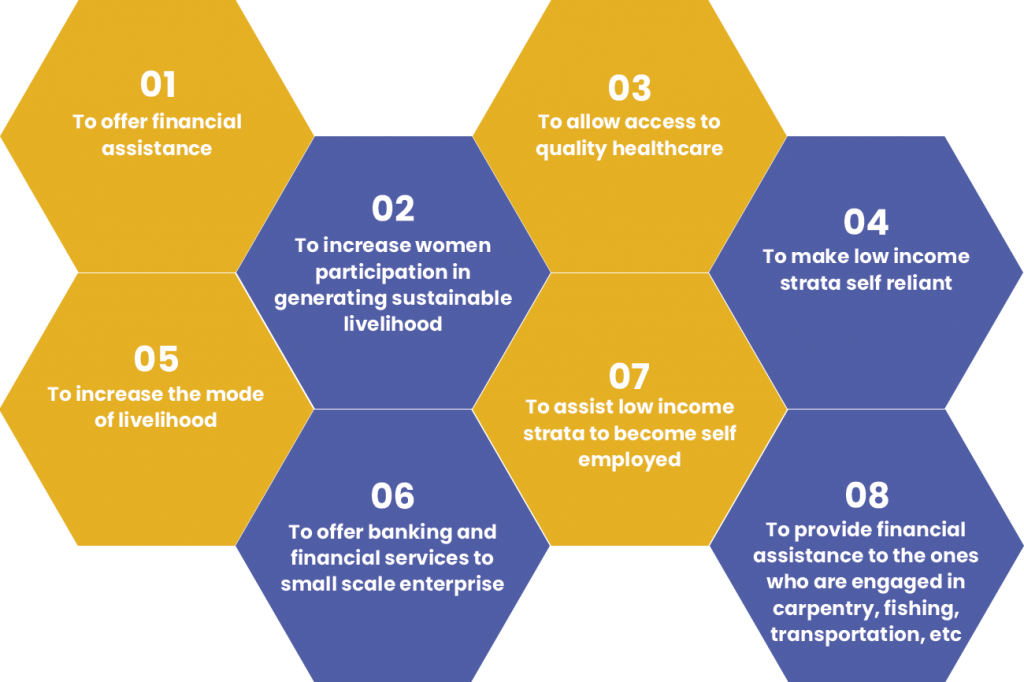Start Microfinance Company in India: A Complete Business Plan

Shivani Jain | Updated: Feb 19, 2021 | Category: Microfinance Company, RBI Advisory
For the prosperity and upliftment of the low and medium income level strata, finance and credit play a significant role in their lives. However, the majority population of this income strata does not have proper access to commercial banks and loan houses. In this situation, the concept of Microfinance Company came as a relief for these people, as they offer and credit on low interest. To start Microfinance Company in India, one needs to obtain Micro Finance Company Registration from RBI.
In this blog, we will discuss in detail about the concept and business plan to start microfinance company in India.
Table of Contents
Concept of Microfinance Company in India
The term Microfinance Company or Microfinance Institution means an NBFC that offers financial assistance to the low income group, in the form of Loan, Savings, Insurance, Credit, Money Transfer, Insurance, etc. Also, these companies provide microcredits to borrowers.
Further, the existence of microfinance companies is at a small scale in comparison to large NBFCs, as these institutions primarily deal with low income, economically backward, and the rural sector of the society.
Who can take Loans from Microfinance Companies?
The ones eligible to take loans and credit from Microfinance Companies are as follows:
- Small Scale Businesses;
- Artisan Business;
- Agricultural Activities;
- Professional and Transport Trades;
Also, Read: Different Ways to Establish Micro Finance Company
Objectives of Microfinance Company
The main objectives of a Microfinance Company are as follows:

- To offer financial assistance;
- To increase women participation in generating sustainable livelihood;
- To allow access to quality healthcare;
- To make low income strata self-reliant;
- To increase the mode of livelihood;
- To offer banking and financial services to small scale enterprise;
- To assist low income strata in becoming self-employed;
- To provide financial assistance to the ones who are engaged in carpentry, fishing, transportation, etc.;
Benefits of Microfinance Company
The key benefits of a microfinance company are as follows:

- To generate job prospects;
- To fund for sustainable living;
- To provide an opportunity for saving, future investment, and children education;
- To offer better loan repayment rate;
Basic Requirements to Start Microfinance Company in India
The basic requirements to start Microfinance Company in India are as follows:
- Must have a registration under the Companies Act 2013 or the Companies Act 1956;
- Need to maintain 85% of the total qualifying assets;
- Must have prior approval from the Reserve Bank of India;
- Should have Rs 5 crore as the Net Owned Fund (NOF). However, in the case of North Eastern State, the said limit has been decreased to Rs 2 crore;
Documents Required to Start Microfinance Company in India
The documents required to start Microfinance Company in India are as follows:
- A copy of the Incorporation Certificate;
- PAN Card details of the Applicant Company;
- PAN Card details of the proposed Directors;
- Digital Signature Certificates for Directors;
- Director Identification Number for Directors;
- Latest Passport sized photographs for all the Proposed Director;
- Address Proof of the premise being used as Registered Office;
- In the case of the Rented Property, a copy of the Lease Agreement or Rent Agreement;
- In the case of the Owned Property, a copy of the Sale Deed
- A copy of the Certified Memorandum of Association;
- A copy of the Certified Articles of Association;
- Banker’s Report;
- Copy of the Board Resolution passed;
- Auditors Report showcasing the minimum NOF (Net Owned Funds);
- Compliance Certificate from a Practising Chartered Accountant;
- Structured Business of the Entity;
- Financial Report concerning Directors;
- Income Proof of the Directors and Key Managerial Personnel;
Process to Start Microfinance Company in India
The steps involved in the process to start Microfinance Company in India:
Incorporate a Company
To start Microfinance Company in India, the applicant needs to first incorporate a company under the provisions of the Companies Act 2013. The same can either be a Private Limited Company or Public Limited Company.
Also, it shall be pertinent to state that the requirement of having Rs 1 lakh as the Minimum Capital has now been removed by the Ministry of Corporate Affairs.
Raise the Required Capital
Further, in the next step, the applicant needs to raise an amount of Rs 5 crore or Rs 2 crore (in case of the north eastern state) as the authorised capital. The said required capital can only be raised by way of issuing the equity shares. That means the option of issuing preference share capital has clearly been ruled out.
Open a Bank Account
Now, the applicant needs to open a bank account for making a fixed deposit. The amount of the fixed deposit will be the one received by the company.
After that, the respective bank will issue a certificate of no lien to the applicant, which it needs to annex with the application to submit the same with the Reserve Bank of India.
Apply for Registration as Microfinance Company
Now, to obtain the Microfinance Company registration, the applicant needs to furnish the certified copies of the following with the RBI:
- Certificate of Incorporation;
- Extract of the Object Clause as specified in MOA;
- Fixed Deposit Receipt;
- Banker’s Certificate;
- Banker’s Report;
File Online Application
To obtain Microfinance Company Registration, one needs to file an application for the same with the Apex Bank, for which it will be issued an ARN (Application Reference Number).
Furnish the Hard Copy
In the last and the final step, the applicant will need to approach the Regional Office of the Apex Bank to furnish the Hard Copy of the Application Form. After that, the authorities designated by the RBI will carry out the process of Due Diligence, and if got satisfied, then a Certificate of Commencement of Business will be issued by them to the applicant.
Conclusion
In a nutshell, Microfinance Institution is an NBFC that primarily deal with low income, economically backward, and the rural sector of the society. The main aim of this type of NBFC is to make the backward section self-reliant and to increase the mode of livelihood for them. To start Microfinance Company in India, one needs to first incorporate a company under the provisions of the Companies Act 2013 and thereafter need to comply with the requirements mentioned above.
Also, Read: Major Risks Faced by Micro Finance Company in India














